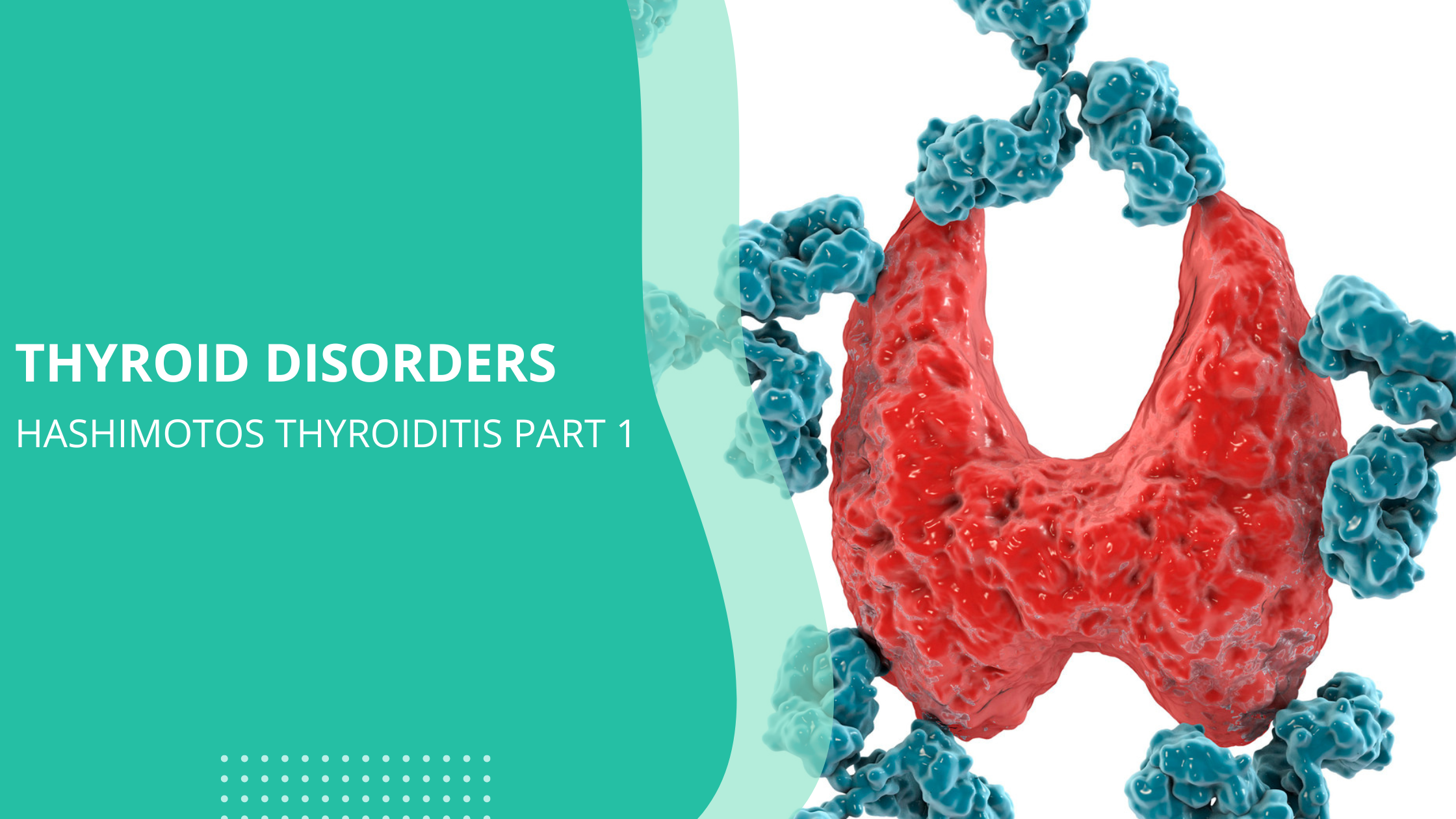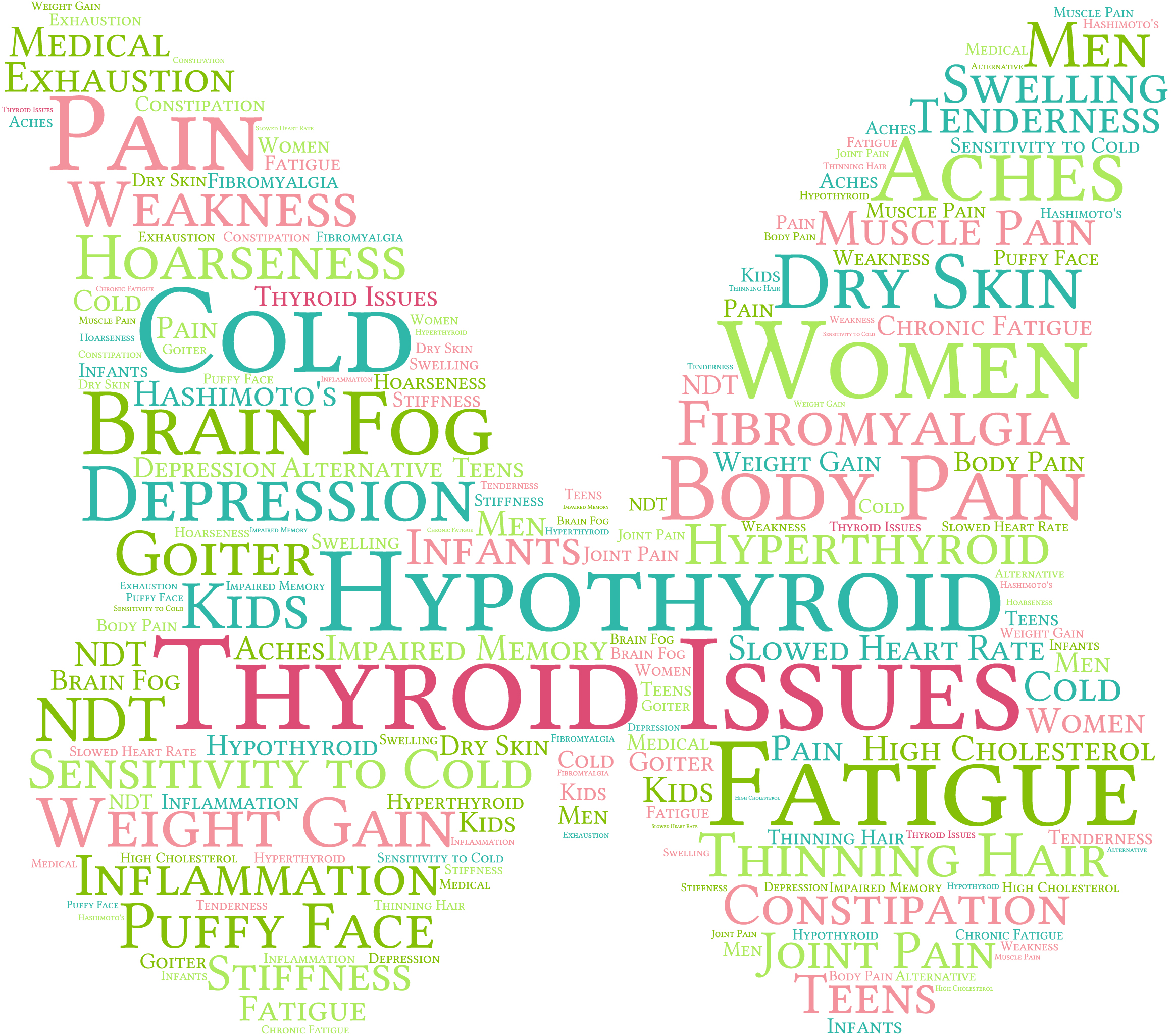If you’re considering Jase, chances are you’ve paused and thought, “This makes sense, but I still have a few questions.”You’re not alone. Here are the most common ones we hear, answered plainly. Is this really doctor-prescribed? Yes. Every Jase order is reviewed by a...
Hashimotos Thyroiditis Part 2

Tips to manage Hashimoto’s
- Health risks of not treating Hashimoto’s adequately
- Lifestyle/stress reduction tips to manage energy and emotional ups and downs
- How to naturally increase biologically active T3
- Diet strategies to help heal
- Nutritional supplements that can aid in recovery and optimal health
- How to advocate for yourself in the healthcare field when dealing with Hashimoto’s
Health risks of not treating Hashimoto’s adequately
- May cause impaired carbohydrate metabolism leading to an increase in type 1 and type 2 diabetes- A study that examined hospitalized patients between the years of 2001 and 2010, the Endocrinology and Diabetology Department in Bydgoszcz concluded : “Conclusions: Carbohydrate metabolism disorders in the form of type 1 diabetes connected with an autoimmune process, as well as type 2 diabetes connected with the increase of the insulin resistance, occurred in average of half of the patients with Hashimoto’s thyroiditis.”
- Cognitive decline/brain fog, inability to focus, – Hashimoto’s thyroiditis is an inflammatory disease (hence the “itis” at the ending of thyroiditis) This extends to brain tissue, where brain inflammation can cause a multitude of problems.
- Fertility issues– An unregulated thyroid condition of any kind can lead to lack of or incomplete implantation or early miscarriage. Thyroid disorders in men can affect sperm quality and motility
- Higher risk of heart disease and high cholesterol
A large study in Demark over a period of 7 years revealed that individuals with mild hypothyroidism who were not treated had an 83% increased risk of developing heart problems as compared with individuals with normal thyroid function or hypothyroidism that was treated.
High cholesterol – Low thyroid function negatively affects lipid metabolism, leading to an increase LDL, the “bad cholesterol.”

Lifestyle/stress reduction tips to manage energy and emotional ups and downs
Hashimoto’s disease can have you feeling great one day and totally exhausted the next. Even when optimally managed, excess stress, either emotional or physical can leave one feeling exhausted for days. It is important to maintain good diet, adequate exercise, avoid stress as much as possible and keep a consistent schedule.
- Remove/reduce sugar from the diet as much as possible, replace with fiber rich fruits. Sugar can place a tremendous burden on the body, flooding cells with insulin to deal with excess glucose in the bloodstream. This can set off a cascade of reactions that challenge thyroid regulation and can affect fat cell receptors and metabolism.
- Make time for exercise-Make sure you are getting at least 15 minutes of brisk walking in a day. However, don’t overdo any physical activity. This can cause adrenal fatigue, cortisol overload and other stressors that can create a cascading downward spiral resulting in an overload on thyroid function.
- Plan your days, but don’t over plan. Make time in your schedule to eat a healthy diet, exercise and get good quality sleep. In addition, make relationships and community a priority. Healthy relationships help carry life’s burdens and reduce stress hormones.
- Get adequate, good quality sleep- The body repairs, heals and detoxifies during sleep. Good quality sleep is vital for Hashimoto patients. Aim for at least 7 hours of shut eye.
- Keep stress at a minimum. Overactive adrenals, cause by stress can lead to thyroid dysfunction, diabetes, heart disease and more. Nurture and maintain supportive relationships. Avoid news and media if it negatively affects you. Take up a hobby. Hobbies have proven to reduce stress and calm the mind.
How to naturally increase biologically active T3
T3, the biologically active thyroid form can be increased by:
- Supplementing diet with selenium and zinc rich foods. A rich source of selenium can be found in Brazil nuts- you only need 1-2 a day, Zinc is found in shellfish, nuts, meats, legumes. If supplementing with either selenium or zinc consult your care provider. Selenium toxicity can cause kidney failure and heart attack or heart failure, zinc toxicity symptoms are nausea, dizziness, vomiting and can lead to copper deficiency and a decrease in HDL (good) cholesterol.
- Adding healthy fats to your diet– flax, avocado, raw unsalted seeds, and nuts. These foods aid in helping cell receptors take up thyroid hormone.
- Moderate exercise– Walking, jogging, swimming, tennis, biking, hiking in moderation helps overall thyroid function.
- Liver detoxification– The liver is involved in the conversion of thyroid hormone and regulation. Some foods that can help detoxify the liver are onions, beetroot, apples, turmeric, leafy greens, tea and in moderation, coffee.
- Add sea vegetables to your diet. Iodine is a key factor in thyroid function; however, iodine supplementation can be tricky. Too much or too little can negatively affect thyroid dysfunction. Sea salt and iodized salt in moderation along with adding kelp and seaweed powder to your meal can help provide iodine needed supplementation.
- Drink plenty of good quality, fluoride free water- Filter your water, and if fluoridated use a filter that removes fluoride. Fluoride has an electrical affinity stronger than iodine and will bond to the tyrosine molecule (Thyroid hormone is comprised of tyrosine and iodine) This reduces the amount of thyroid hormone in the body.
Diet strategies to help heal
It is believed that impaired gastrointestinal tract (gut dysbiosis) and intestinal permeability are the main cause of Hashimotos. To learn more check out Dr Isabella Wentz book on Hashimotos Thyroiditis- the root cause. This book is a wealth of information to educate and empower anyone dealing with Hashimoto’s.
- As stated above, avoid simple carbohydrates. Breakfast should include a quality high protein item and fruit or vegetable if desired. Some quality high protein foods are cold water fish (salmon, sardines, and tuna for example) grass fed and finished meats, eggs, and poultry.
- Increase leafy greens and vegetables such as carrots, turnips,celery
- Drink twice body weight in ounces of quality water.
- Add healthy fats to your diet. Healthy fats include butter (no margarine) flax, raw, unsalted nuts and seeds, avocados, olive oil and cold-water fish such as salmon.
- Add a digestive enzyme right before meals if you experience stomach issues.
- Eat soy in moderation- Soy, if paired with iodine deficiency can inhibit thyroid function. Check ingredient labels on every packaged food item, including salad dressings, protein bars, ice cream etc. for added soy. Most nutritionists advise to limit soy, not cut it out completely.
- Cruciferous vegetables- cabbage, broccoli, cauliflower, brussel sprouts etc. if eaten in excess can suppress thyroid function. These foods are packed with nutrition. Don’t cut them out completely, just don’t eat in excess.
- Supplement with probiotics and fermented foods- Gut health-restoring the gut microbiome- is a large part of healing and managing Hashimoto’s
- Do a trial run of going gluten free- It takes about 3 weeks for the body to adjust to a gluten free diet. Many report relief in digestive symptoms and less body aches after stopping gluten. In a select population, gluten consumption can trigger an immune reaction. This is because gluten contains a protein (gliadin) that resembles transglutaminase, an enzyme of the thyroid. In gluten sensitivity or celiac disease, the immune system mistakenly attacks the thyroid.
- Some people react to casein which is found in cow milk, yogurt, some cheeses and supplements. Casein is very structurally similar to gluten(gliadin) and some people have a negative reaction to it, just like gluten.
Nutritional supplements that can aid in recovery and optimal health
Important-Check with your healthcare provider before taking supplements- many supplements can interact with medications you are currently taking
- Selenium works in synergy with vitamin E to form active T3
- Zinc- helps repair intestinal walls and stabilizes immune system.
- Vitamin D with K2 (K2 aids calcium absorption to bones instead of going to arteries where calcium can build up, leading to heart attack and stroke.)
- Vitamin C with bioflavonoids
- Magnesium citrate
- Iron in the form of ferritin- if iron deficient
- Iodine
- B complex (look for the methylated form of B12)
- Probiotics
- Betain with Pepsin- a natural gastric acid- many Hashimoto sufferers have low stomach acid
- Digestive enzymes- hel break down fats, carbohydrates and protein. Many diagnosed with Hashimotos have problems digesting food.
How to advocate for yourself in the healthcare field when dealing with Hashimoto’s
Dealing with thyroid disorders can be a complicated and complex health issue. Many diseases mimic others- Some heart diseases may have undiagnosed thyroid function. This also is common with depression, anxiety, and other mental health disorders. Some medications can affect thyroid function. Diabetics have a higher incidence of thyroid disorders.
Educating yourself and seeking a health professional who understands thyroid disorders is vital to overall wellbeing.
At the very minimum, request a TSH and free T4 lab if hypothyroid is suspected.
Keep a journal of food, activity, mood and physical symptoms that you have recorded for a week or so before your appointment. Include physical signs of hypothyroid you may be having. This will enable your care provider to provide the best care possible.
- Brooke Lounsbury, RN
Medical Content Writer
Lifesaving Medications
Recent Posts
Keeping you informed and safe.
FAQ: Our most commonly asked questions about Jase
Medical Readiness: What Really Kills First
When Disaster Strikes, It’s Not Hunger or Thirst That Takes the First Lives In every disaster zone, from hurricanes in the Caribbean to war zones in Ukraine, the pattern is the same. People worry about food and water, but it’s infection that kills first. A small wound...
Exploring Dr. William Makis’ Hybrid Orthomolecular Cancer Protocol: Focus on Ivermectin and Mebendazole/Fenbendazole
Exploring Dr. William Makis’ Hybrid Orthomolecular Cancer Protocol: Focus on Ivermectin and Mebendazole/Fenbendazole *Disclaimer: This article is for educational purposes and does not constitute medical advice. Always seek professional guidance.* In the evolving...





